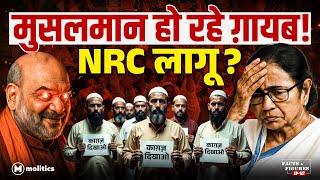
Pakistan to China, Arunachal Pradesh’s Pasighat checks all the poll boxes
On February 16, two days after the Pulwama terror attack, hundreds of people — political leaders, students and the migrant business community — held a candle-light march to “honour the martyrs” in Pasighat, a town on India’s eastern tip along the banks of the meandering Siang river, bordered by the Abor hills of the Himalayan ranges.
Among those leading the march were Pasighat East constituency’s BJP MLA, Kaling Moyong, and the man he had
defeated in the 2014 assembly elections by a mere 50 votes, Congress’s Bosiram Siram. Both are on either side of the political divide again — for the assembly elections alongside the Lok Sabha polls. But on that day, they marched together on that “patriotic walk” from the Mahatma Gandhi statue in the local market to that of the late Daying Ering, a former Parliamentarian from this town.
“The feeling of nationalism is very strong across Arunachal Pradesh. We love India and hate China,” says Kanggong Tayeng, a 25-year-old B.Ed student at the Daying Ering College of Teacher Education, who took part in that march.
Among those leading the march were Pasighat East constituency’s BJP MLA, Kaling Moyong, and the man he had
defeated in the 2014 assembly elections by a mere 50 votes, Congress’s Bosiram Siram. Both are on either side of the political divide again — for the assembly elections alongside the Lok Sabha polls. But on that day, they marched together on that “patriotic walk” from the Mahatma Gandhi statue in the local market to that of the late Daying Ering, a former Parliamentarian from this town.
“The feeling of nationalism is very strong across Arunachal Pradesh. We love India and hate China,” says Kanggong Tayeng, a 25-year-old B.Ed student at the Daying Ering College of Teacher Education, who took part in that march.
Register
Login
News
Leaders
Authors
Caricatures
Contact Us
Privacy Policy
Terms & Conditions
Refund Policy
Pricing
Follow Us - Facebook | Twitter | Youtube
Molitics © 2025































































